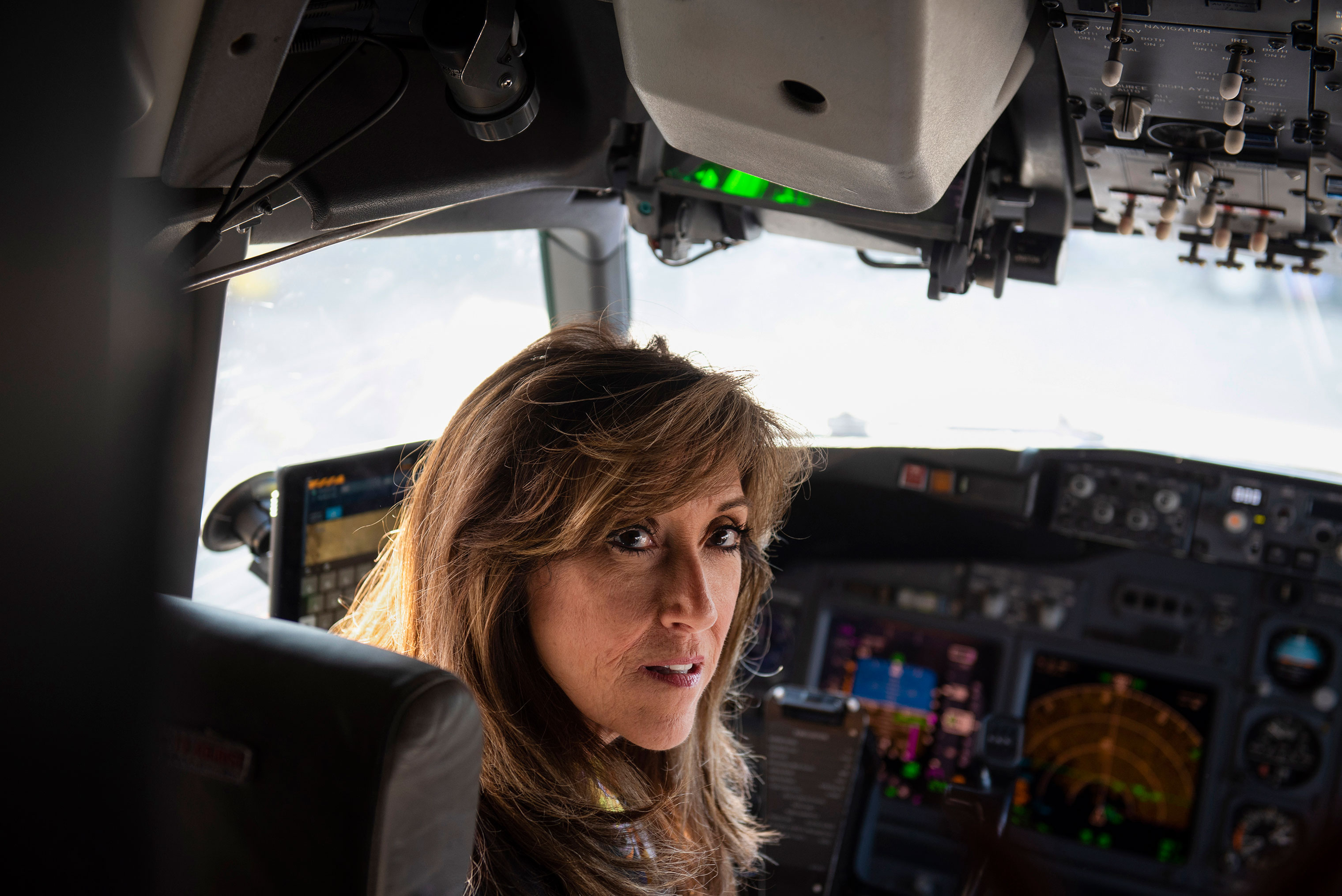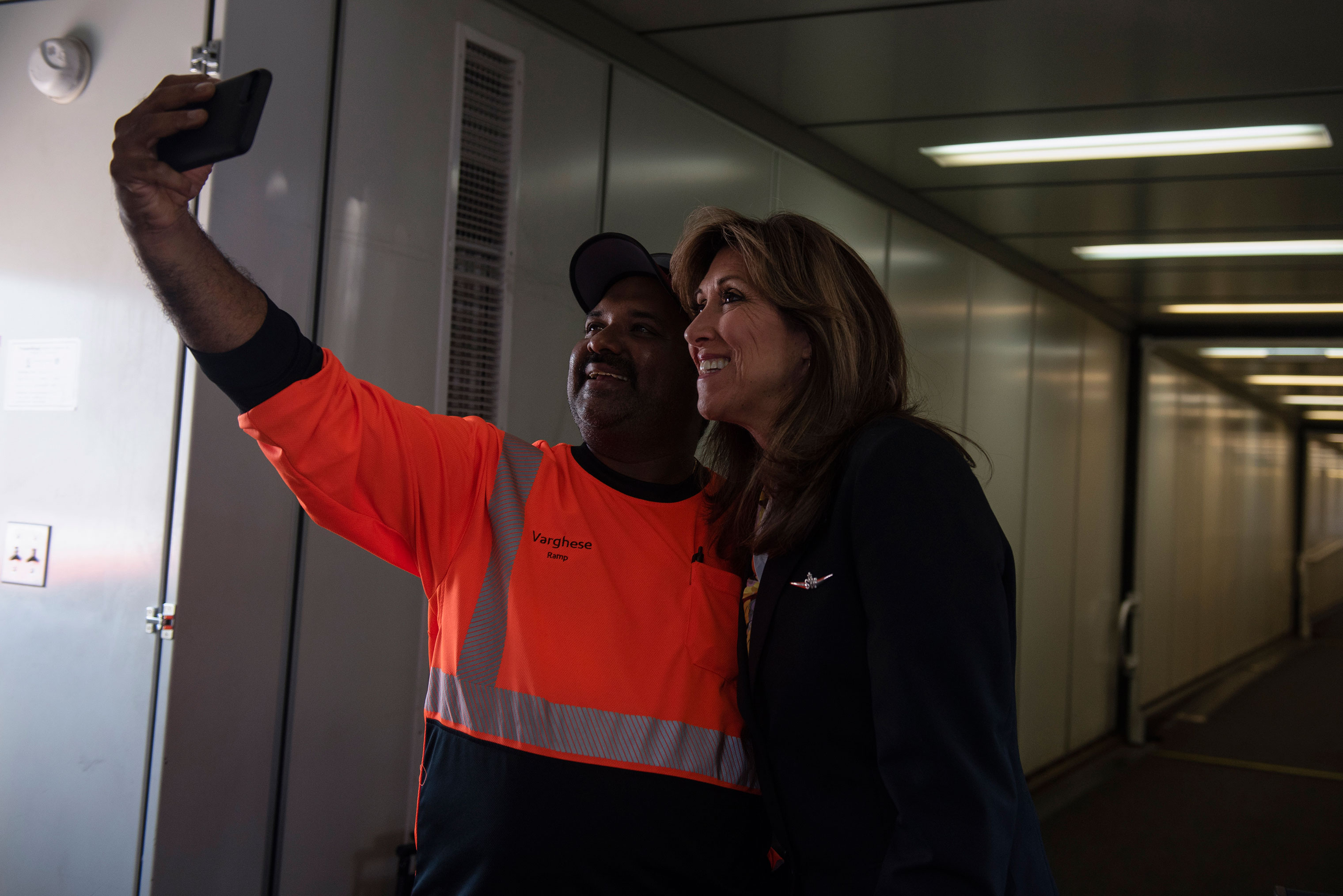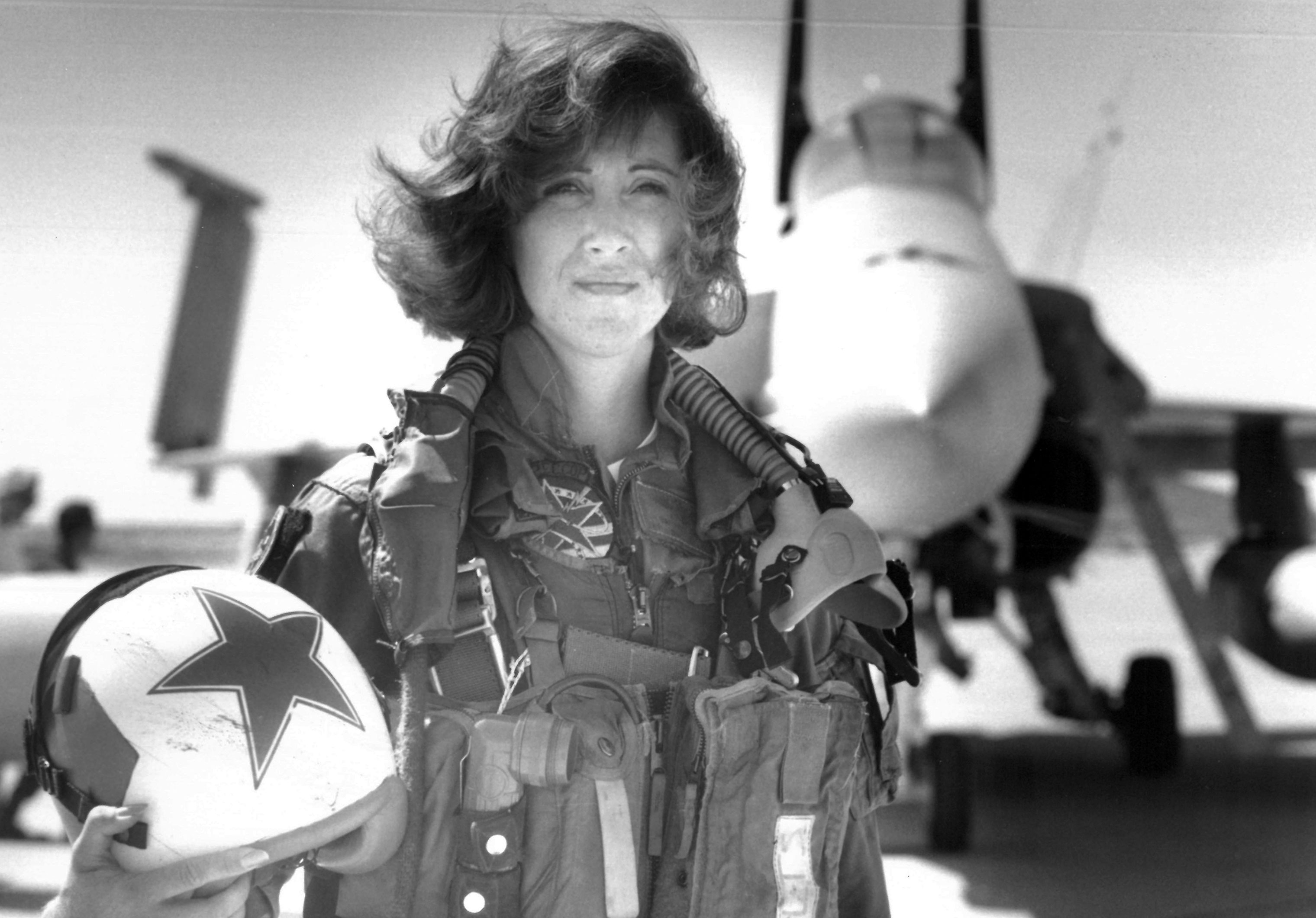Tammie Jo Shults grew up looking at the sky from her family’s ranch in Tularosa, New Mexico, under the dogfighting airspace of a nearby military base, captivated by the whirling wings of jets and the pilots inside. She absorbed pages upon pages out of books about the adventures of missionary aviators, and before she turned 13, her itch to fly became a full-blown longing.
Shults—who gained worldwide acclaim earlier this year as the hero Southwest pilot who landed a severely damaged plane—said she pursued her dreams undeterred because her parents raised her and her brothers to not see differences in the abilities between men and women, especially when it came to hard work. But that all changed during her senior year of high school. Shults was sitting in an aviation lecture, surrounded by young men, on a career day for potential future pilots when she said she got one of her first reality checks.
“The colonel that was in charge asked me if I was lost,” Shults said in a recent sit-down interview with TIME. “I told him no, I wanted to come to the aviation career day. And he said, ‘It’s a career day, not hobby day, and girls don’t do this.'”

Mortified, Shults said she sat down and kept quiet while the wheels in her mind started turning. “I thought, ‘OK, girls really don’t do this. Then I need to find something else,’” she recalled. “I got out to the modern world and realized, no, there’s people that won’t allow you to do things, just on the basis that you’re a girl.”
“It was discouraging,” she added. “I had a few tears by myself in the desert over it, but then I moved on.”
Shults briefly pursued a career in veterinarian care, but she couldn’t shake her passion for flying, even as she reached multiple dead ends within the military. The Army, she said, told her she probably wouldn’t be a good “fit,” and the Air Force asked whether she had a brother instead. Even the Navy, which allowed her to take two written tests, initially dismissed her as a “girl pilot” they didn’t need, according to Shults. (The three military branches did not immediately respond to requests for comment.)
“I made a deal with myself and the Lord and thought, ‘I’m just going to ask one more time and then I’m going to move on in life,’” she says.
In 1985, Shults got her big break. A different recruiter processed her and she was finally enlisted in the Navy, where she went on to become one of the first female fighter pilots, at a time when women were barred from combat and faced open hostility from their male counterparts. “There were some in leadership there that made it very apparent their disdain for women pilots,” Shults says. Once, Shults says, she and a fellow female pilot were not invited to attend a dinner with their male cohorts. Instead, they had to make a meal out of vending machine snacks. And during a bombing run, the two women were the only ones who had to practice without bullets.
“Things like that helped you know you weren’t a part of the group,” she says. “There were some times that being the only woman in the room, it was kind of like being the green apple in a bushel of red. You’re still an apple; you’re still a pilot, but you’re not accepted.”

Shults didn’t let that bother her. When she was shunned from social gatherings, she used the time to hone her craft instead. Obstacles became opportunities to improve. “When there’s overt aggression,” Shults says, “whether it’s professionally, personally or physically, that always wounds your heart for a minute or two before you get up and dust-off your britches and go, ‘You know what? I do have the right to be here, and I am here.’”
And where there were men who held her down, there were always those who lifted her up. Shults counts many mentors who motivated her along the way, including men like Capt. Fred Grant and Capt. Kevin Coston — both instructors who Shults called “voices of reason,” who didn’t draw lines between genders. She also finally felt equal in the ranks under the leadership of the trailblazing Capt. Rosemary Mariner, who was one of the first women to enter military pilot training, according to the Smithsonian National Air and Space Museum. “There was no difference of what you were expected to do depending on your gender,” Shults says. “I never felt [that] before I got to her squadron.”
Shults left the Navy in 1993 and joined Southwest Airlines, where she is now a captain, but the 56-year-old still finds herself leaning on that support network. She recently turned to them for help after her actions on a fatal flight made her suddenly famous. On April 17, immediately after an engine exploded on Southwest Flight 1380, causing 43-year-old passenger Jennifer Riordan to be sucked halfway out of a shattered window mid-air, Shults kept her repose as she safely landed the damaged plane, saving 143 passengers on board. Released audio of the incident depicts Shults calmly relaying the dire situation to dispatchers until she made the emergency landing.

Despite attempts by other passengers to save her, Riordan, a bank executive and mother from New Mexico, died. It was the first fatality involving a U.S. registered commercial passenger air carrier since 2009—when a plane crashed near Buffalo, New York—according to the National Transportation Safety Board, which is investigating the incident. Shults, who was hailed a hero worldwide, says she thinks about what happened on Flight 1380 “every day,” but she didn’t elaborate further.
Now, as she’s navigating fresh waters and transitioning into what she calls her “new normal,” Shults said her mentors have encouraged her to use her newfound platform to reach future aviators. The married mother of two makes it a point to encourage talented women to join the aviation industry, where, by one estimate, only 6 percent of commercial pilots are women. She’s also embraced the role of a mentor. For several years, Shults has mentored freshmen women from the military prep school at Schreiner University, hosting them for an annual weekend at her home in Texas.
“You don’t even need to be alone,” she said. “It is such a wonderful open field and it doesn’t matter—girl, guy. All the doors are open.”
More from the Only Woman In the Room series:
Female Powerhouses Reveal the Mistake They’re Glad They Made
Angela Bassett, Constance Zimmer Share Their Rejection Stories
Lauren Holtkamp Navigates NBA World as League’s Only Female Referee
Fundraising Advice From Female Founders Who Raised Serious Cash
Breaking Ground for Women — PAID CONTENT
- Donald Trump Is TIME's 2024 Person of the Year
- Why We Chose Trump as Person of the Year
- Is Intermittent Fasting Good or Bad for You?
- The 100 Must-Read Books of 2024
- The 20 Best Christmas TV Episodes
- Column: If Optimism Feels Ridiculous Now, Try Hope
- The Future of Climate Action Is Trade Policy
- Merle Bombardieri Is Helping People Make the Baby Decision